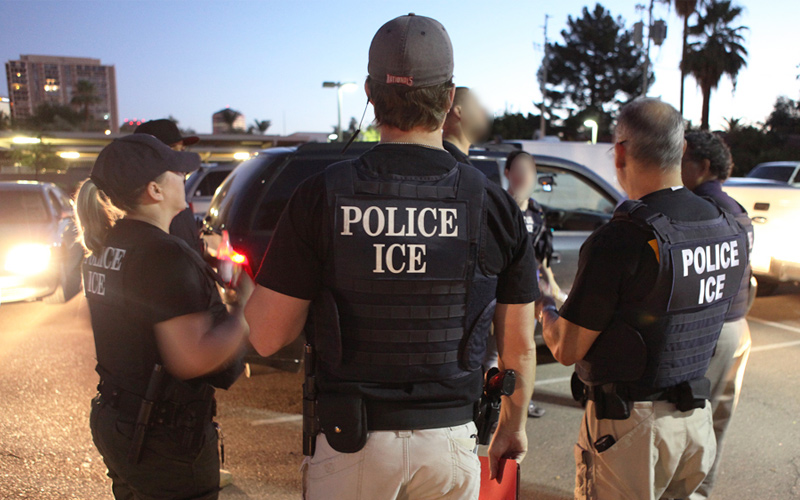
On May 5, the US Department of Homeland Security announced that immigrants in the US can use a smartphone app to claim free plane tickets and $1,000 payments if they’re willing to “self-deport.”
During her Senate confirmation hearing for the position of DHS secretary, Kristi Noem promised that “on day one, CBP One will be shut down.”
CBP One was (and is), a phone app used by immigrants to interact with US Customs and Border Protection [sic]. By “shut down,” it turns out she meant “re-named CBP Home and tilted toward encouraging immigrant ‘self-deportation’ rather than facilitating asylum claims.”
Since changing the app’s name, the woman popularly referred to as “ICE Barbie,” and not in a flattering way, has promoted it in television commercials:
“If you are here illegally [sic] … you will be fined nearly $1,000 a day, imprisoned, and deported. You will never return. But if you register using our CBP Home app and leave now, you could be allowed to return legally.”
So in the space of a couple of months, it’s gone from a $1,000 per day fine to $1,000 in pocket money and a free plane ticket. What’s not to like, other than the idiotic idea that it’s a GOOD thing for productive workers to flee the United States, let alone get paid to do so?
Well, there’s this:
Who on Earth would trust the US government, Donald Trump, or Kristi Noem with their location and other information, or believe that the supposed future path to “return legally,” or even that the plane ticket and thousand bucks would actually happen?
If I’m an immigrant in the US who doesn’t possess one of those Very Special Magical Important Permission Slips to travel to, move to, or work at anywhere I please, I doubt I’d be inclined to tell Trump, Noem, CBP or ICE where to find me. They’re simply not trustworthy.
And why the sudden honey to hide the smell of the vinegar?
Well, Trump’s vaunted “mass deportation” program doesn’t seem to be going very well. According to the Migration Policy Institute, the administration is only on track to deport half its goal of one million immigrants this year (and every year after).
If anything, the early number in “mass deportation” should run well ahead of, rather than behind, future numbers. It’s “easy pickins'” right now. As time goes on, immigrants will get better, not worse, at hiding from Trump’s roving gangs of “immigration enforcement” thugs.
Of course, we’re used to presidents over-promising and under-delivering. Dwight D. Eisenhower’s 1954 “Operation Wetback” program claimed to have deported 1.1 million immigrants, but the more likely number was about 300,000 — and “Operation Wetback” was accompanied by a credible, and fulfilled, promise that many of those deported would be able to return with work visas under the “Bracero” program, rather than the non-credible Trumpian “maybe” claim.
The current “mass deportation” effort is evil, ugly, and incredibly damaging to the US economy. Fortunately, it seems to be failing. So now you know why they’re offering those plane tickets and payouts.
Thomas L. Knapp (X: @thomaslknapp | Bluesky: @knappster.bsky.social | Mastodon: @knappster) is director and senior news analyst at the William Lloyd Garrison Center for Libertarian Advocacy Journalism (thegarrisoncenter.org). He lives and works in north central Florida.
PUBLICATION/CITATION HISTORY


